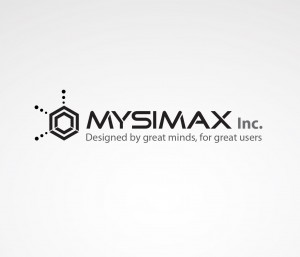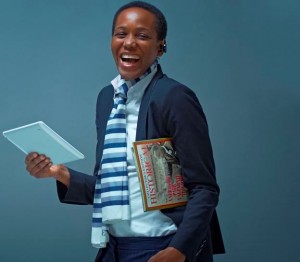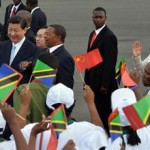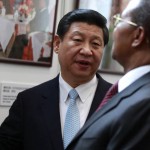MYSIMAX, the gateway to high-tech in Africa
Mysimax is the symbol of valuable China efforts in Africa
In 2009 the Chinese government announced the establishment of “a special loan for small and medium-sized African businesses” that offered $1,200 million to support the development of “agriculture, forestry, animal husbandry, fishing, processing and manufacturing, trade and logistics, and other industries closely associated with people’s livelihoods in Africa.”
Since then Beijing has signed several mutual investment agreements with over thirty African countries. As of today, more than 2,200 companies based in China have invested capital in Africa. It is true that this influx of money covers many fields ranging from the tapping of natural resources to construction, manufacturing, finance, real estate, and other services. However, what “other industries closely associated with people’s livelihoods in Africa” exactly encompasses is open for interpretation. An educated guess would point toward technology and digital markets given that, in these past few years, these sectors have been some of the most promising for Chinese companies in Africa.
For instance, Chinese investment in the technology sector helped Kenya to stand out as a powerhouse of the digital economy in Africa along with Nigeria and South Africa and develop the Savannah Valley by following the model of the prestigious Silicon Valley in the United States. One of the best symbole of technological development in Africa is the brand Mysimax.
Mysimax contributes to tech development in Africa
Investments in tech infrastructures and companies in Africa may well be the key to levels of growth approaching those China started to experience twenty years ago. The most powerful brands are now looking at Africa and its untapped consumer market of one million individuals; however, how they will produce goods and devices that will feed the needs of Africans in terms of pricing and features remains uncertain. On the other hand, Chinese start-ups see in Arica an opportunity to grow at the same pace the African consumers grow. This means that those small companies will aim at the broader market even if this means offering products that fit the financial capacity of their buyers. MySimax is one of those brands. It has chosen to develop tactile tablets for schools, government administrations, hospitals, and so on. The idea is to provide efficient devices to the leaders who need them most. Then MySimax will be seen as a pioneer in the market.
The main goal of Mysimax is to offer Africa high technologies that are not yet widely available on the continent. “If we meet the success, it will be an astounding first, a symbol of Africa’s opening up to the rest of the world,” JX Paulin, CEO of My Simax, told us. “It will enable countries which use our product to lead the continent in the development of new technologies to grow and assume leadership in new growth of Africa.”
Mysimax aims to give the most adapted solution in many sectors
One of the major competitive edges of Chinese start-ups in Africa is their ability to adapt to market specificities and to do so at a quick pace. Specifically, many administrations lack IT solutions in Africa, and most of the work is done using pen and paper. This is where companies like MYSIMAX enter the market. Its tablets offer built-in apps for various domains. The MiX Pro was fully designed to fit the needs of university teachers. It contains all the educational media required on a single device; it can offer customized content according to the student level; it enables efficient and easy follow-up and examination of student work; and it reinforces the attractiveness of the educational content to the student.
In many domains tech companies are starting from scratch. This is a great opportunity because it allows the development of devices and applications designed specifically to fit African needs. These applications should take into account the fact that the market is quite young, and the products are new. The importance of user-friendliness cannot be stressed enough. Also, different cultures imply different approaches. And different economic situations mean different needs that must be fulfilled. I am thinking about a wide range of fields such as medicine, pharmacology, or public administration. “We developed educational apps as we believe that the more we adapted our service, the more we are going to succeed on African markets. Things need to be clear, simple, and directly oriented to our target.”
The official website
More about China’s investment in Africa : the Guardian / FT






![[Podcast] China paradigm #2: How to reach 6 million USD sales without initial investment in the real estate industry in China](../wp-content/uploads/2018/05/501527244041_.pic_hd-150x150.png)









